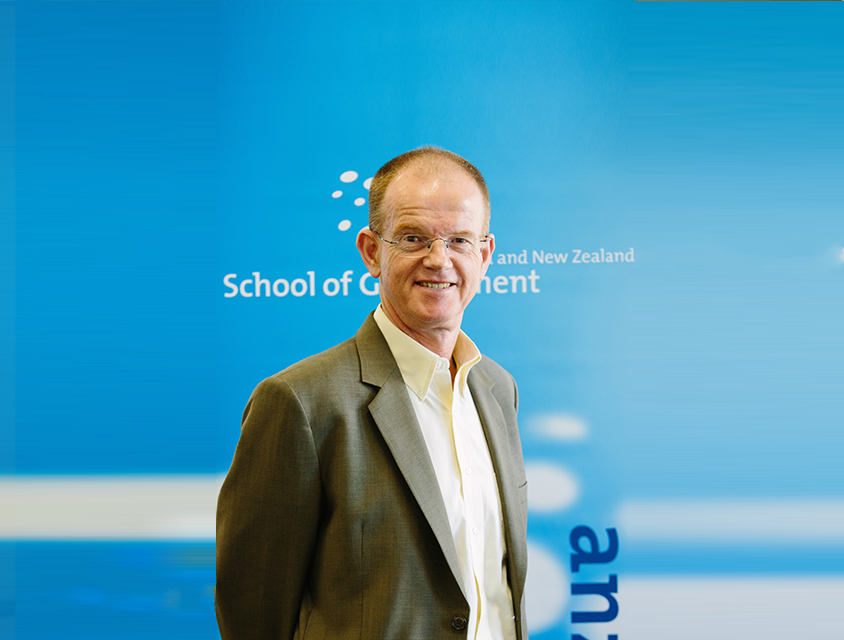
Economics of Contemporary Policy Challenges
Price
$1990 (incl. GST)
Location
Online
Duration
8 sessions over 4 weeks
Dates
2 May- 24 May 2024 (Micro-credential to proceed subject to min. 20 bookings made)
Overview
“…there a need to improve the capacity of the public service to deliver evidence-based policy advice …If we fail, …it will compromise government’s capacity to implement the beneficial national reforms that this country needs for the long term.”
Gary Banks, Former Chair of the Productivity Commission and Dean of ANZSOG.
In this course, students will gain deeper insights into a range of significant public policy challenges facing Australian governments. These challenges will include: transitioning to a low-carbon economy; ensuring sustainable funding of social spending programs such as the NDIS, Medicare and aged care; improving the availability of affordable housing, both rental and owner-occupied; securing funding for future infrastructure needs. The course will explore these challenges through the lens of economic principles and tools. Students will gain new insights into potential policies, programs and regulations for addressing these challenges.
The learning mode will be workshop-style, focusing on interactive discussions in small groups as well as plenary sessions. The workshops will address contemporary case studies of policy challenges and the presenter will help participants learn how to apply economic principles and tools to each policy challenge.
Four modules over eight half-day sessions will address the following contemporary challenges:
- Challenges in transitioning to a low-carbon economy
- Sustainable funding of major social spending programs
- Availability of affordable housing
- Funding of future infrastructure
What will you learn?
On completion of this course, participants will be able to:
- better understand the economics of the big public policy challenges facing Australia
- better appreciate the importance of addressing the big policy challenges for the economic welfare of the Australian people
- apply key economic principles and tools in order to design government interventions to address policy challenges, including government regulations, spending programs and taxation
- identify and explain, using economic analysis, the relative merits of potential solutions to policy challenges
- identify and explain the potential effects of policy solutions on the distribution of income and wealth among broad groups in society
- identify and explain the potential effects of policy solutions on productivity and living standards in Australia
Participants who have successfully completed this course will have:
- a broader and sharper skill set in analysing and addressing complex public policy challenges
- a deeper understanding of the relevant social and economic issues in any given policy problem
- a better appreciation of the merits of alternative policy options
- an improved ability to communicate authoritatively on socio-economic issues
- an appreciation of some limitations of economic analysis in addressing policy challenges
More broadly, students will be able to:
- develop the ability and confidence to discuss the economics of public policy challenges
- identify flaws in economic arguments
- identify potential unintended consequences of various government interventions
- appreciate the assumptions behind, and limitations of, economic solutions to policy challenges
Who should attend?
This course will suit early to mid-career public sector managers and senior officers seeking to design government interventions to address major public policy challenges. Managers and leaders across the whole public sector who wish to broaden and sharpen their skill set in the public policy space will benefit from this course.
Who will lead the course?
Ross Guest is Professor (Emeritus) of Economics in the Griffith Business School at Griffith University, a Principal Fellow with the Higher Education Academy, and an adjunct professor at the Australia and New Zealand School of Government. Prof Guest holds a PhD in Economics from the University of Melbourne.
He is the former Editor-in-Chief of the International Review of Economics Education and an author of two textbooks. His primary field of research is population economics, on which he has published many articles and has received four Australian Research Council grants. He has completed a number of consultancies for government agencies in Australia and New Zealand.
Ross Guest has led similar courses with ANZSOG for nearly two decades. He is a nationally and internationally recognised leader in economics education, having received a number of awards and fellowships for learning and teaching in economics.
Dan O’Halloran is a Director in EY’s Business Consulting Practice based in Sydney, an Independent Adviser to the Griffith Data Trust, and Adjunct Lecturer with the Department of Accounting, Finance and Economics at Griffith University. He has almost 20 years’ experience working throughout the Australian health ecosystem. He has worked in primary and acute care, across private and public operators, for multiple Australian jurisdictions, and at various levels of national and state governments and their respective agencies. He is an experienced strategic adviser to Government, with experience working with a diverse range of stakeholders to work through complexity to deliver meaningful outcomes. He demonstrates a commitment to evidence and data-driven place-based policy development and leverages his relationships domestically and internationally to identify innovative solutions.
Given Dan’s unique breadth of education and experience, he can meaningfully engage with the complex challenges faced by today’s system leaders. He can strategically support system leaders in achieving performance improvement initiatives; negotiating with key stakeholders’ transformational roadmaps that deliver improved service delivery and outcomes; and can achieve these improvements while balancing the financial and economic challenges of the system.
Dan holds a Master of Science in Health Economics, Policy and Management from the London School of Economics and Political Science, and a Bachelor of Pharmacy and Bachelor of Commerce from the University of Tasmania. He is a Certified Practising Accountant, a Graduate of the Australian Institute of Company Directors and is a registered Pharmacist.
Economic Lessons from COVID
The COVID-19 pandemic required system leaders to make critical choices when the paths were not clear. Dan worked on the COVID-19 pandemic from early January 2020, before many of us knew anything about what was about to unfold. He led several teams to deliver at speed data and analytics capabilities and insights to assist system leaders in understanding the risks across the system, and the trade-offs of options available. He was a lead author, along with leading Australian academics and institutions in preparing a roadmap for recovery. Dan’s contribution to the micro-credential course will explore the challenges faced by today’s system leaders within the Australian context of small markets, the role of regulation and competition, and explore why placed and evidenced based policy is important for economically sound and sustainable policy development.
Event Details
Dates:
- Session 1: 2 May 2024
- Session 2: 3 May 2024
- Session 3: 9 May 2024
- Session 4: 10 May 2024
- Session 5: 16 May 2024
- Session 6: 17 May 2024
- Session 7: 23 May 2024
- Session 8: 24 May 2024
Duration: Eight sessions over four weeks (3-hour workshops including assessment)
Location: Online
Cost: $1990 (incl. GST)
Fee Discount:
ANZSOG Alumni receive a 15% discount.
Every person who completes the Executive Master of Public Administration, Executive Fellows Program, Deputies Leadership Program, Towards Strategic Leadership or an international program becomes part of our alumni. Only one discount is redeemable for each registration.
Got a question?
To enquire about this program, please contact ANZSOG’s Engagement Team, with the program name as the subject line, at engage@anzsog.edu.au or call us on 1300 ANZSOG (1300 269 764).


